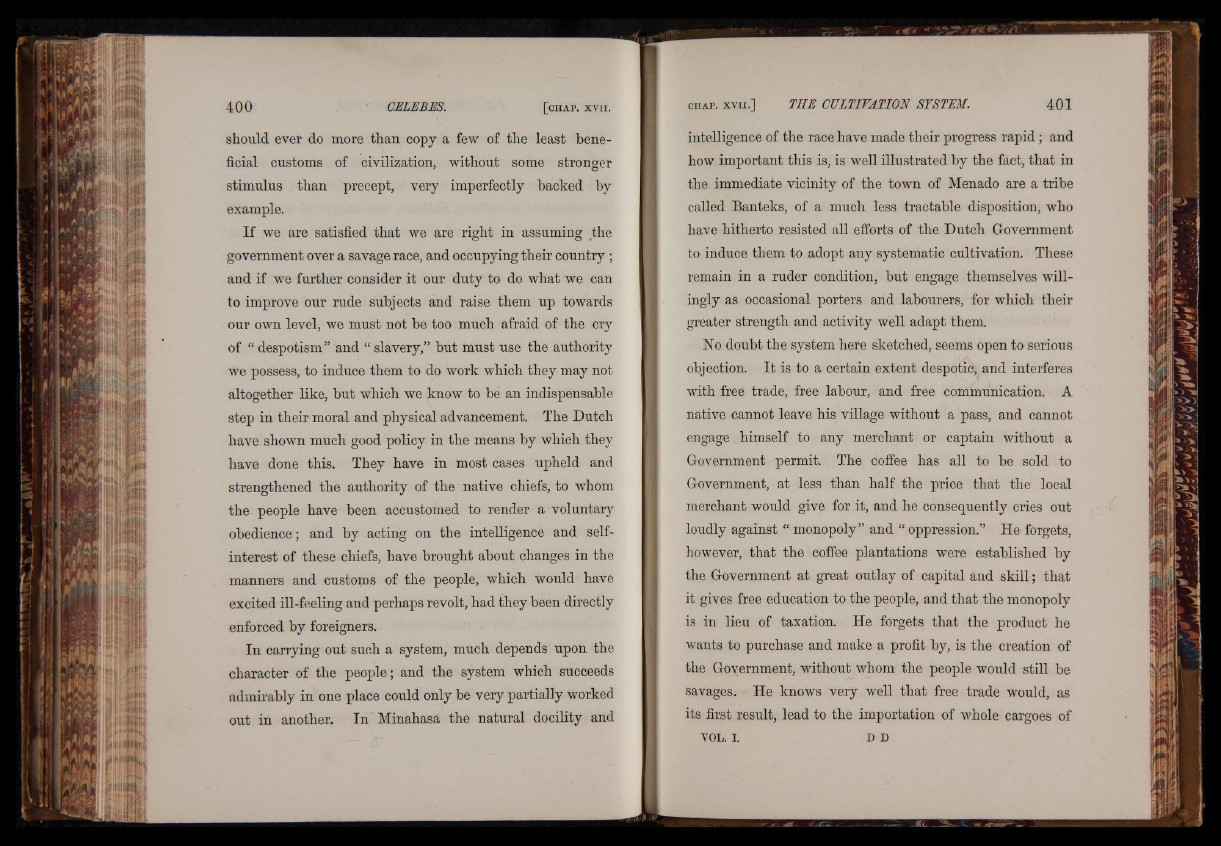
should ever do more than copy a few of the least beneficial
customs of civilization, without some stronger
stimulus than precept, very imperfectly backed by
example.
If we are satisfied that we are right in assuming the
government over a savage race, and occupying their country ;
and if we further consider it our duty to do what we can
to improve our rude subjects and raise them up towards
our own level, we must not be too much afraid of the cry
of * despotism” and “ slavery,” but must use the authority
we possess, to induce them to do work which they may not
altogether like, but which we know to be an indispensable
step in their moral and physical advancement. The Dutch
have shown much good policy in the means by which they
have done this. They have in most cases upheld and
strengthened the authority of the native chiefs, to whom
the people have been accustomed to render a voluntary
obedience; and by acting on the intelligence and self-
interest of these chiefs, have brought about changes in the
manners and customs of the people, which would have
excited ill-feeling and perhaps revolt, had they been directly
enforced by foreigners.
In carrying out such a system, much depends upon the
character of the people; and the system which succeeds
admirably in one place could only be very partially worked
out in another. In Minahasa the natural docility and
intelligence of the race have made their progress rapid; and
how important this is, is well illustrated by the fact, that in
the immediate vicinity of the town of Menado are a tribe
called Banteks, of a much less tractable disposition, who
have hitherto resisted all efforts of the Dutch Government
to induce them to adopt any systematic cultivation. These
remain in a ruder condition, but engage themselves willingly
as occasional porters and labourers, for which their
greater strength and activity well adapt them.
No doubt the system here sketched, seems open to serious
objection. It is to a certain extent despotic* and interferes
with free trade, free labour, and free communication. A
native cannot leave his village without a pass, and cannot
engage himself to any merchant or captain without a
Government permit. The coffee has all to be sold to
Government, at less than half the price that the local
merchant would give for it, and he consequently cries out
loudly against “ monopoly” and “ oppression.” He forgets,
however, that the coffee plantations were established by
the Government at great outlay of capital and skill; that
it gives free education to the people, and that the monopoly
is in lieu of taxation. He forgets that the product he
wants to purchase and make a profit by, is the creation of
the Government, without whom the people would still be
savages. He knows very well that free trade would, as
its first result, lead to the importation of whole cargoes of
VOL. £ D D